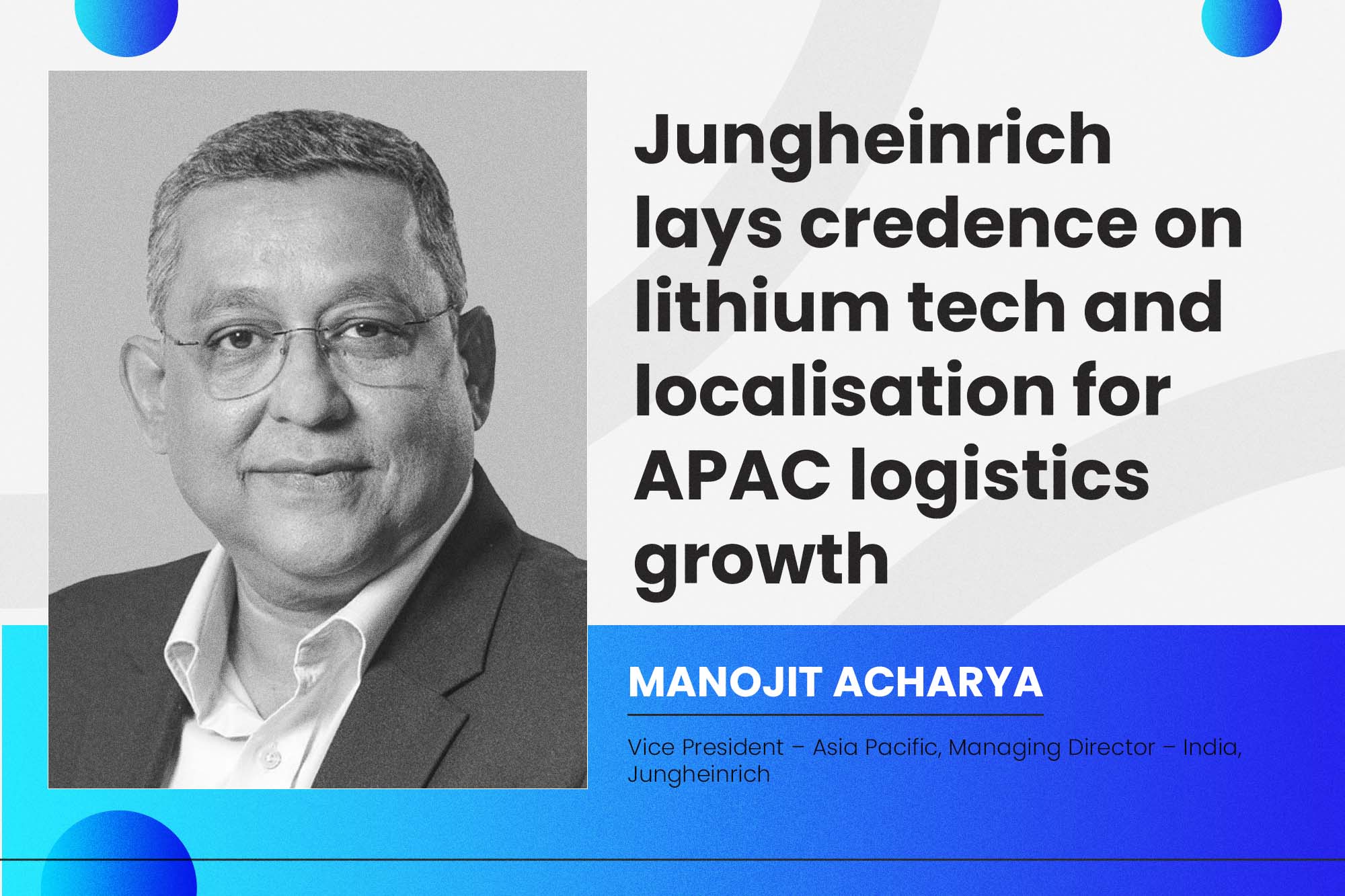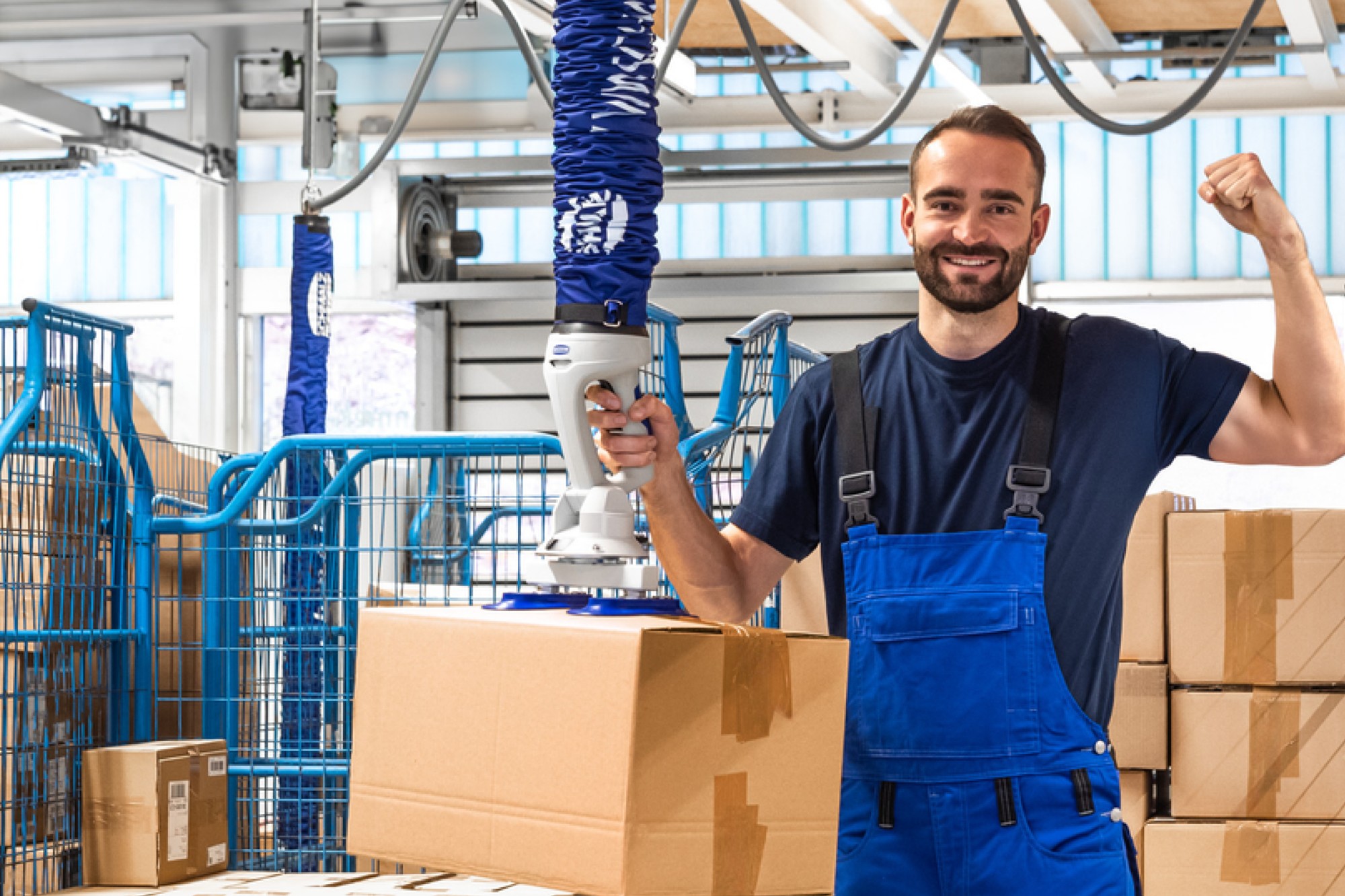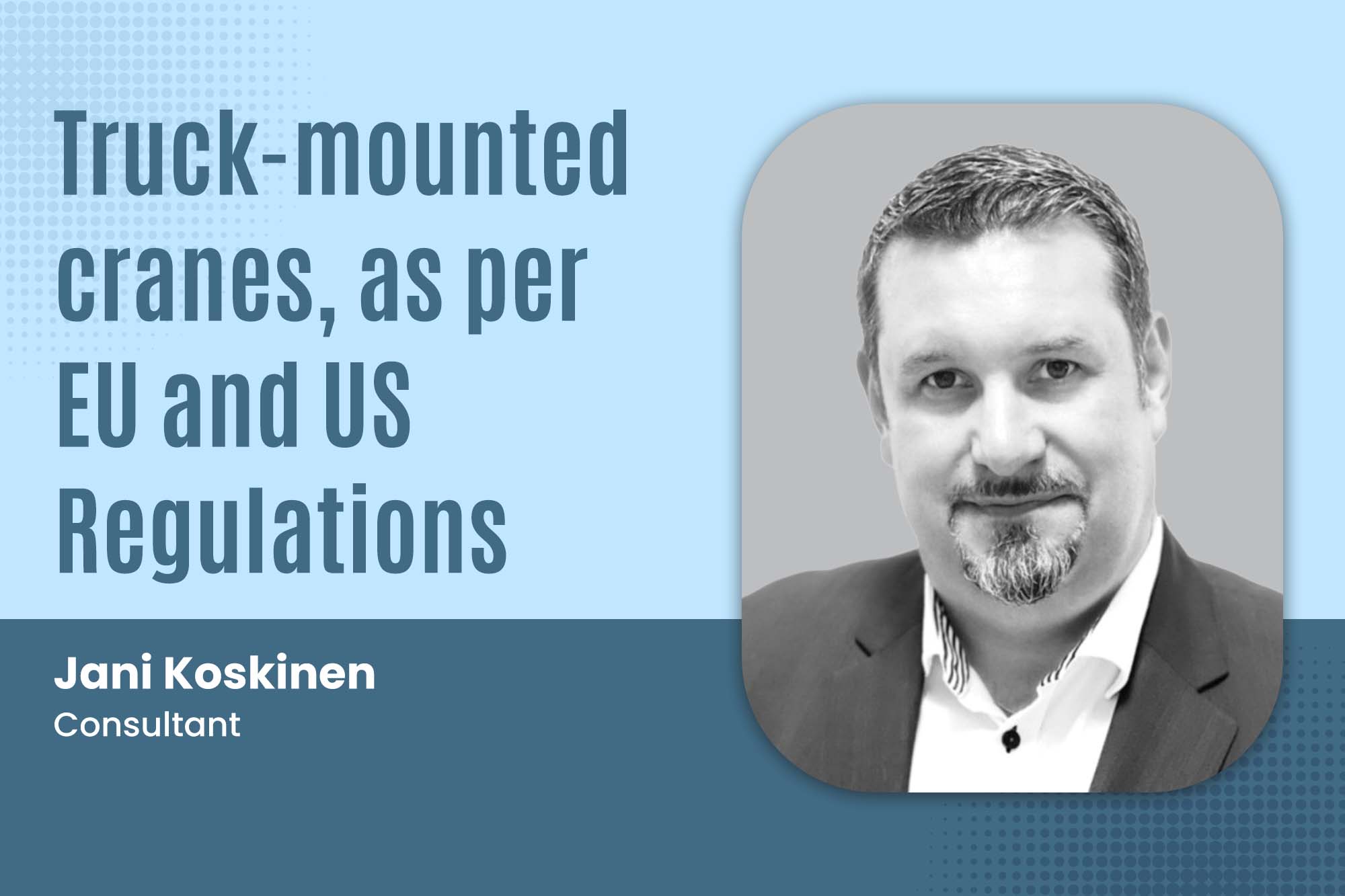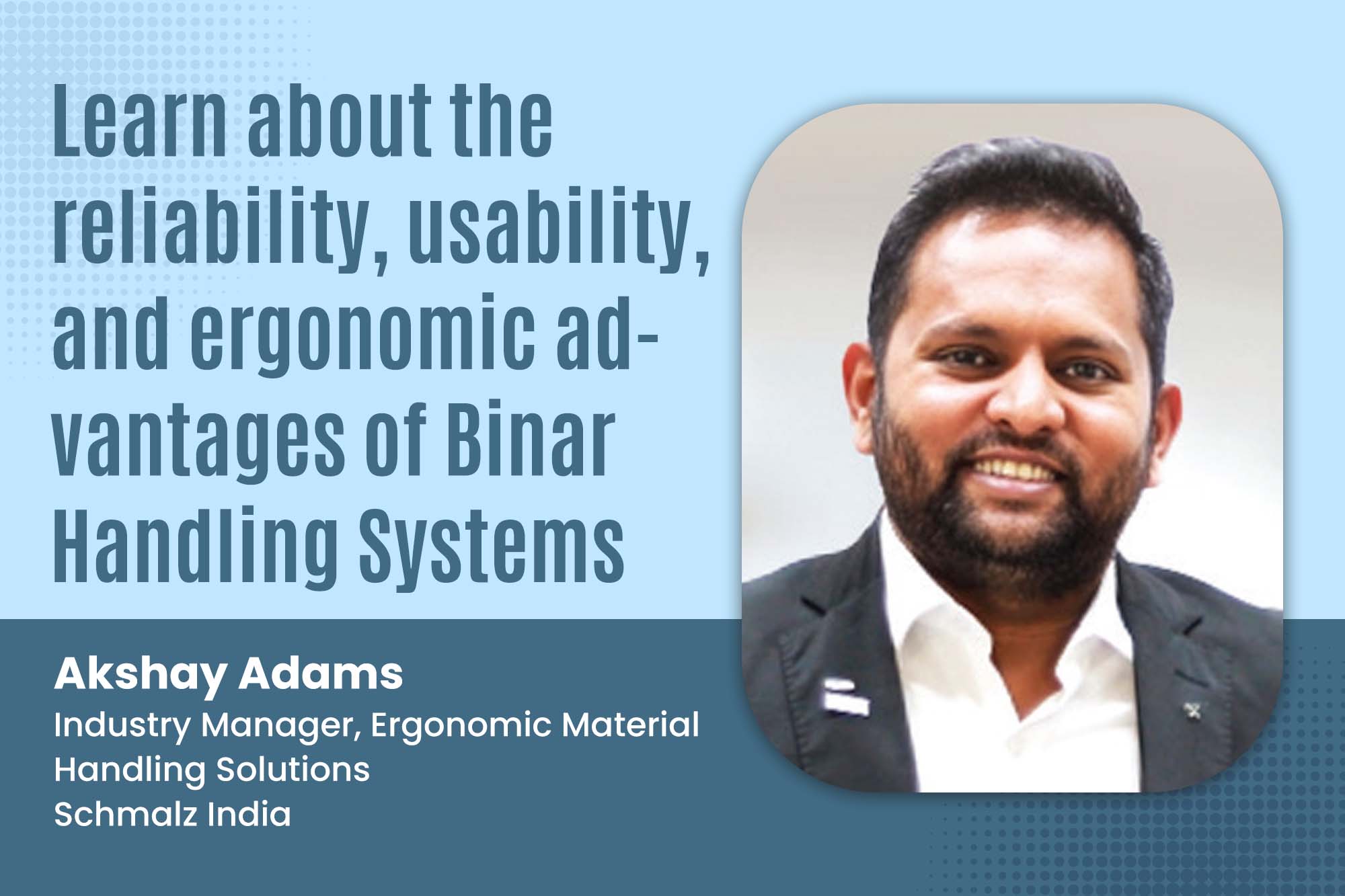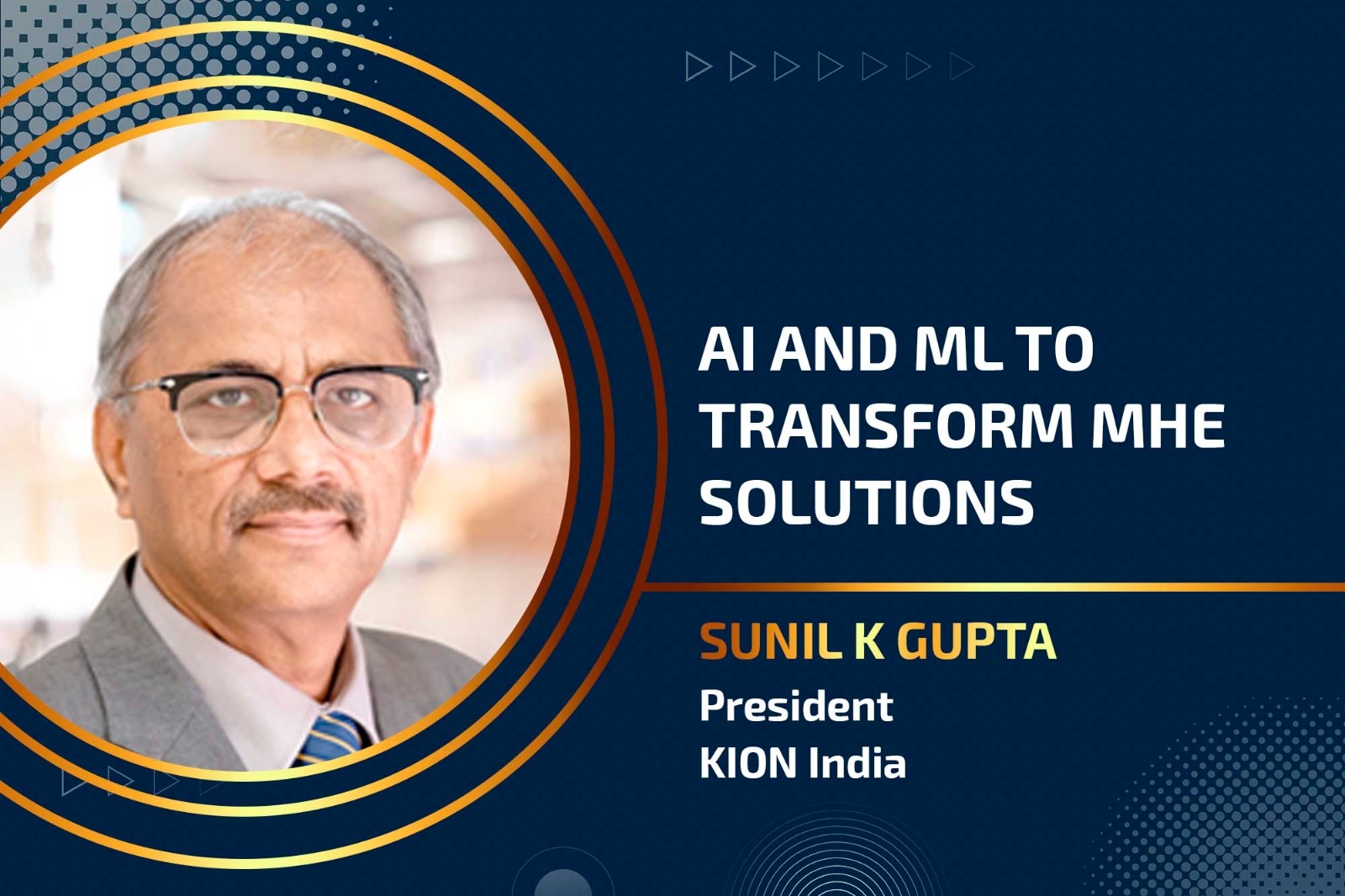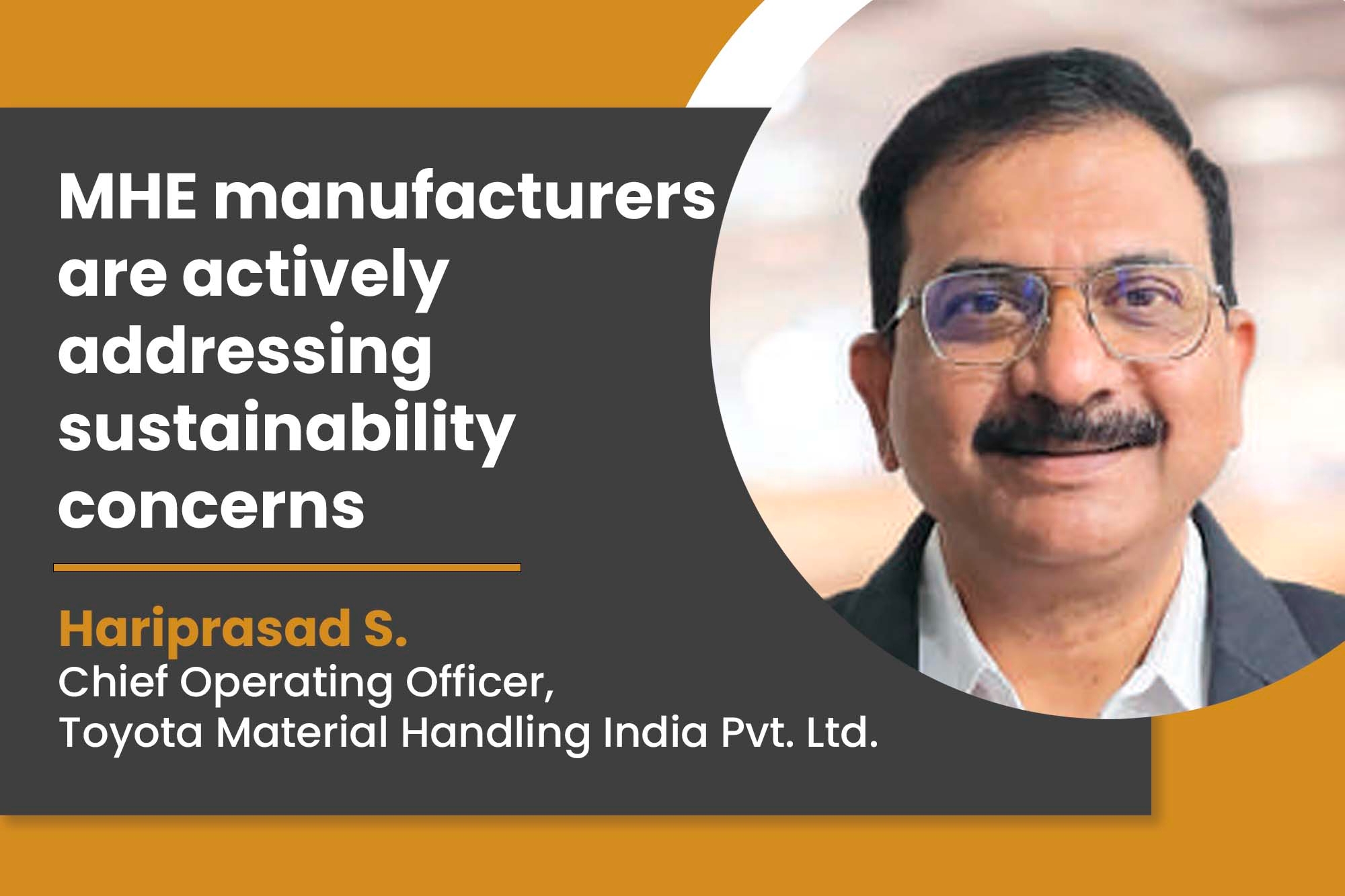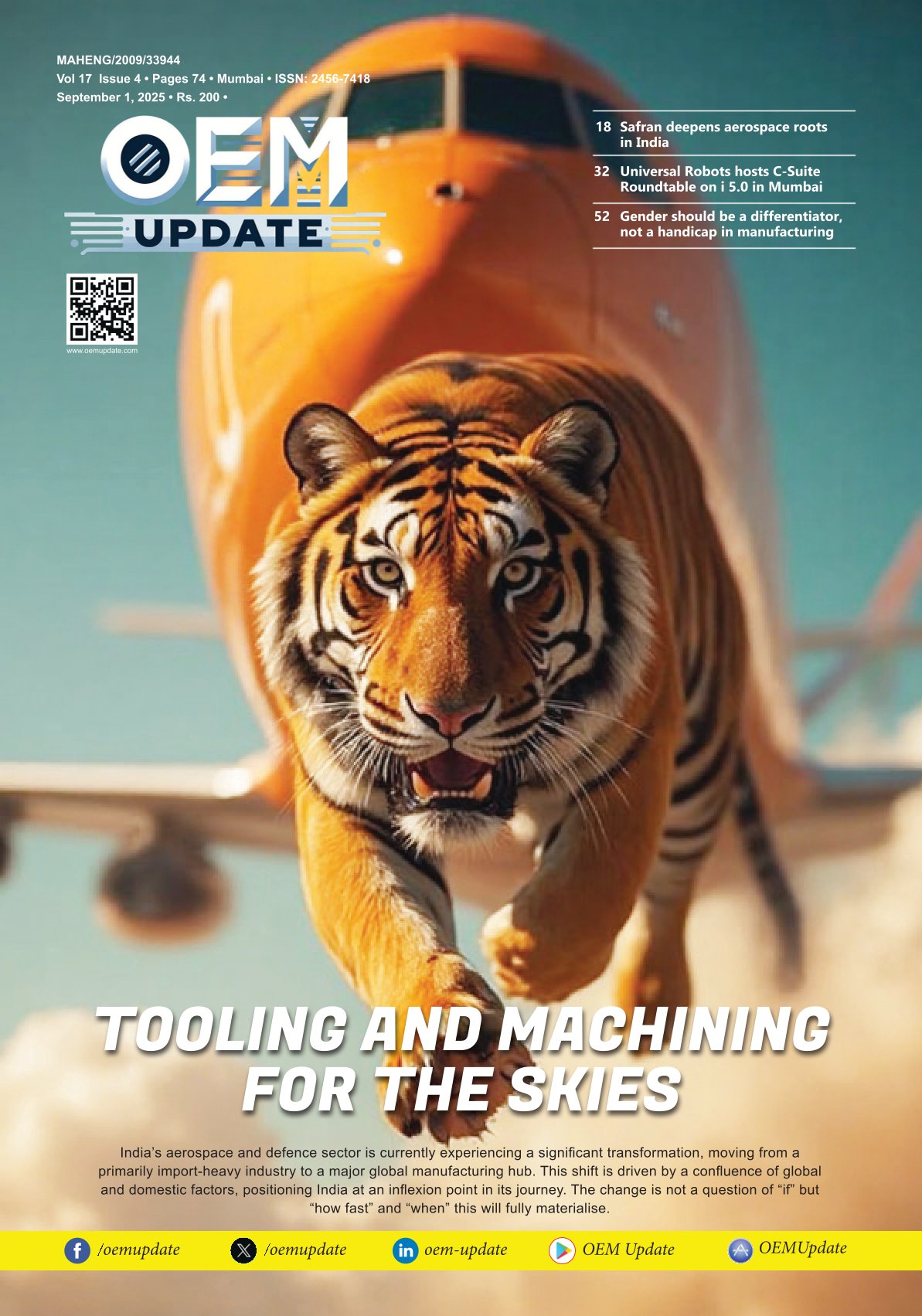Jungheinrich lays credence on lithium tech and localisation for APAC logistics growth
By Staff Report June 5, 2025 7:11 pm IST
Jungheinrich AG is a German company that operates in the fields of material handling equipment, warehousing, and material flow engineering. In these areas, the company ranks second in Europe and third globally. Manojit Acharya from Jungheinrich explains how the company has achieved this esteemed position and continues to evolve by adopting innovative technologies to remain competitive in a dynamic market.
As supply chains become more regional and demand faster fulfilment, how is Jungheinrich adapting its material handling solutions for markets like India and Southeast Asia?
With the boom in e-commerce, retail, and quick commerce, increasing customer expectations for faster delivery, and the growing need for higher energy efficiency, safety, reliability, and productivity, warehouses must be equipped to meet customer demands with speed and agility. This demands better warehouse infrastructure, including high-quality flooring and advanced material handling equipment.
Jungheinrich understands this need well. We offer sustainable material handling solutions powered by state-of-the-art Li-ion battery technology, ranging from entry-level junior trucks, forklifts, and reach trucks to non-standard semi-automatic very narrow aisle trucks (VNA) that can manoeuvre in tight spaces and can be utilised for storage and retrieval at higher heights.
Our equipment enables stacking and retrieving pallets, as well as individual item picking, delivering impressive throughput and optimal space utilisation. These advantages are critical amid rising costs and demand for higher throughput.
We have a strong sales and service network and are continuously expanding our customer touchpoints to serve our customers more efficiently. Complemented by a strong partner network in India and Southeast Asia, we also provide timely support and customised solutions to enhance operational efficiency in these dynamic markets.
How has your factory setup evolved over the past few years as Industry 4.0 and its associated technologies have been enhanced?
Jungheinrich’s global manufacturing footprint has evolved significantly through Industry 4.0 technologies, with a focus on automation, digitalisation, and intelligent networking. Our production facilities, including the Qingpu plant in Shanghai, manufacture trucks for the Asian market by combining globally proven designs with local adaptations. Our digital products, including intelligent warehouse management systems (WMS), fleet management systems (IoT), personal protection systems, AI cameras, and advanced software solutions, help our customers meet their productivity and safety needs. This integration enables real-time data exchange, process optimisation, and higher productivity, supporting smart manufacturing that enhances responsiveness to diverse market demands.
Are you seeing an acceleration in the adoption of automation and AGVs in Indian warehouses, and how is Jungheinrich supporting that shift?
Yes, there is an acceleration in the adoption of automation and AGVs in warehousing across the APAC market. In India, awareness of automation is growing, primarily in the manufacturing sector, and government initiatives such as Make in India, PLI, and government and private capital expenditure are fueling this growth. The primary intent behind implementing AGVs is to relieve human operators of routine, mundane tasks, allowing them to focus on higher-value activities. We support this transition by offering integrated automation solutions, including automated storage and retrieval systems, mobile robots, and AI-powered warehouse management software.
Our fleet management product, ISM Online, enhances operational efficiency and safety by providing detailed analysis and control of forklift fleets. As an expert automation partner, we design and implement customised Automated Guided Vehicle Systems (AGVS) tailored to customer needs, helping warehouses increase cost-effectiveness, streamline processes, and prepare for the future.
How are you managing the balance between manufacturing globally standardised machines and meeting hyper-local customer requirements in diverse regions, such as Thailand, Sri Lanka, and India?We balance global standardisation with the adaptation of local market needs in India and other countries through our local and regional sales and service setup, manufacturing facilities, and deep market insights. With 12 production plants and direct sales companies in 42 countries, supported by partners in over 80 countries, we deliver solutions tailored to operational needs. For example, trucks manufactured at our production facility in Shanghai are adapted to Asian market requirements by combining global quality standards with localised modifications. By working closely with local partners and customers in India, Thailand, Sri Lanka, and other regions, we understand the unique challenges and regulatory environments in these areas. This approach ensures our material handling equipment and systems meet local preferences and industry-specific demands while maintaining global performance and reliability.
How has the India operation contributed to Jungheinrich’s overall growth in the Asia-Pacific region, and what are your expansion priorities here?
India has emerged as a key growth driver for Jungheinrich in the Asia-Pacific region. Supported by various government schemes, India’s rapidly expanding logistics and warehousing sectors—especially in tier II and III cities—offer many opportunities for battery-operated pallet trucks, electric forklifts, reach trucks and our system trucks. Our products and solutions cater to industries of all sizes, enabling us to tap into the vast growth potential of the Indian market.
Our expansion priorities include strengthening the partners and service networks, enhancing the availability of skilled manpower, and introducing advanced sustainable material handling solutions. Our advanced Lithium-Ion Batteries provide sustainable and energy-efficient solutions, remaining central to our product strategy as we support the modernisation of India’s logistics infrastructure and contribute to the overall growth of the Asia-Pacific market.
What challenges do you face in building service infrastructure and skilled manpower in logistics-heavy sectors across South Asia?
We face challenges such as a shortage of trained and skilled operators for material handling equipment, ensuring the timely availability of spare parts, and establishing a widespread service network to support customers across diverse and often remote locations. The rapid growth of the logistics sector in South Asia, coupled with the evolution of technologies such as automation and AGVs, demands continuous workforce upskilling. Supply chain disruptions and rising freight costs further complicate the availability of equipment. Jungheinrich addresses these challenges by investing in comprehensive training programs, expanding its service footprint, and utilising digital tools for proactive maintenance and remote support, thereby enhancing operational reliability and customer satisfaction.
Are Indian users demanding more hybrid automation – a blend of manual and autonomous material handling – and how are you addressing that shift?
Indeed, there is a growing demand in India for hybrid automation solutions that combine manual operations with autonomous technologies, particularly in the manufacturing, warehousing, logistics, distribution, and e-commerce sectors. Hybrid automation enhances efficiency and productivity by automating manual tasks, enabling workers to concentrate on higher-value activities. Consumers now expect quick turnarounds, reshaping traditional workflows. Jungheinrich offers scalable automation options, including semi-automated trucks and mobile robots that operate in conjunction with manual equipment. Our modular automation systems and intelligent warehouse management software enable the seamless integration of hybrid solutions, allowing customers to transition to full automation while gradually optimising their current workflows. We provide end-to-end solutions—hardware, software, and service—from planning through support, ensuring that future-ready warehouses achieve speed, precision, and operational efficiency.
Cookie Consent
We use cookies to personalize your experience. By continuing to visit this website you agree to our Terms & Conditions, Privacy Policy and Cookie Policy.



